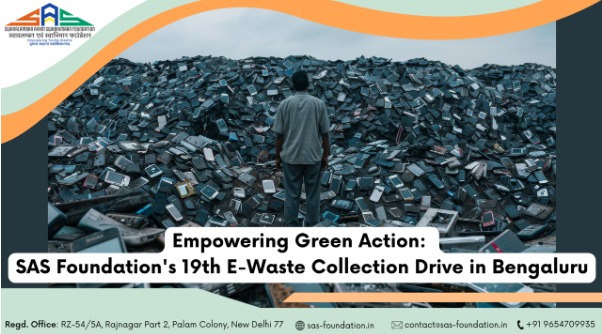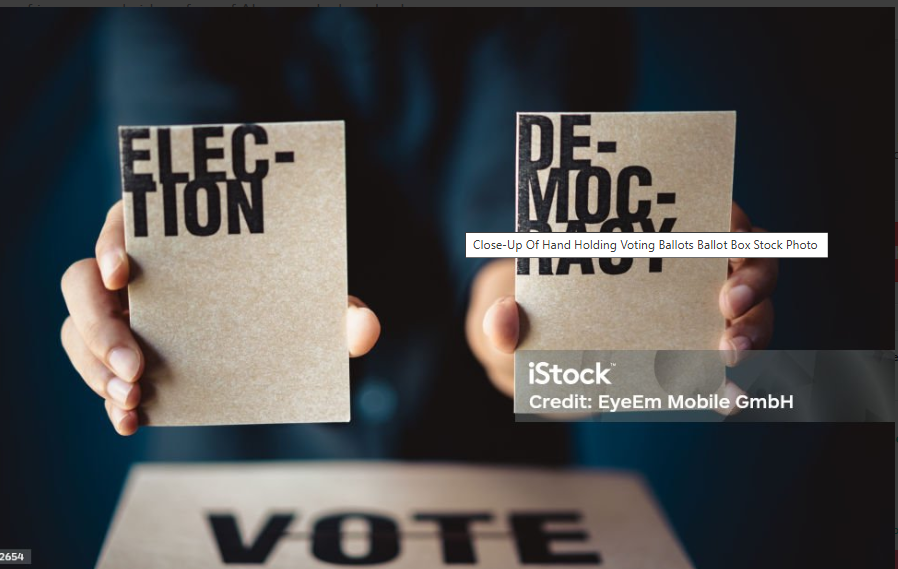📲 Amplifying CSR Impact Through Digital Platforms: Insights from SAS Foundation’s Workshop at FORE School of Management
In today’s rapidly evolving digital landscape, the potential of technology in driving social impact is immense. Yet, many nonprofits and NGOs are still navigating how best to use digital tools to amplify their Corporate Social Responsibility (CSR) initiatives. With this in mind, Swavalamban Avam Swabhimaan Foundation (SAS Foundation) hosted an insightful workshop at the prestigious FORE School of Management, New Delhi, aimed at bridging the digital divide in the nonprofit sector and strengthening CSR collaborations through innovation.
The event brought together students, CSR professionals, development sector experts, and NGO leaders to explore strategies that can take community-focused initiatives to the next level — using digital platforms effectively to scale impact, increase transparency, and foster meaningful partnerships.
🎯 The Need for Digital Transformation in CSR and NGO Work
The workshop began with a compelling discussion on the changing face of CSR. With the rise of sustainability mandates, ESG reporting, and increased public scrutiny, CSR is no longer just a peripheral department — it is a strategic function that must be data-driven, transparent, and agile.
However, many NGOs still struggle with:
- Limited digital literacy and infrastructure
- Lack of online visibility and engagement
- Difficulty in impact tracking and reporting
- Inadequate use of storytelling and content marketing
- Low adoption of cloud, CRM, and automation tools
This gap hinders donor confidence, stakeholder engagement, and long-term sustainability. The session addressed how digital transformation can be a game-changer for such organizations.
🧠 Key Takeaways from the Workshop
The event featured thought-provoking panel discussions, case study presentations, and hands-on activities. Here are some of the key insights shared during the session:
1. Digital Presence is Brand Presence
The first panel emphasized that in the nonprofit world, visibility equals credibility. With so many causes competing for attention and funding, it’s crucial for NGOs to establish a strong, consistent digital identity.
Practical tips included:
- Maintaining an updated and responsive website
- Using social media platforms to showcase on-ground work
- Publishing impact stories, testimonials, and photo essays
- Engaging donors with regular updates, not just appeals
“Today’s donor is online. If your organization is not visible on digital platforms, your credibility — and by extension, your cause — becomes invisible too,” said one panelist.
2. Leveraging Data for Transparency and Trust
CSR partners are increasingly looking for measurable outcomes. Using tools like Google Sheets, Power BI, or even basic CRMs, NGOs can maintain:
- Beneficiary records
- Project progress dashboards
- Before-and-after results of interventions
This data, when presented visually and shared regularly, builds donor trust and helps in annual CSR reporting.
“Don’t think of data collection as a burden. Think of it as a story — every number represents a life touched,” noted a guest speaker from a leading CSR consultancy.
3. Social Media is Your Most Powerful Free Tool
The workshop included a segment on social media strategy, where students helped NGOs in creating live content plans using:
- Instagram reels of on-field impact
- Twitter threads for advocacy campaigns
- LinkedIn posts for CSR collaborations
- Facebook groups for volunteer mobilization
NGO leaders were encouraged to use free tools like Canva, Buffer, and Google Alerts to plan and schedule their content in advance. The power of storytelling was emphasized, especially short, emotional stories backed with real visuals.
“One story shared well can bring 100 supporters. Invest time in storytelling,” said Jyotsana Sinha, Joint Secretary, SAS Foundation.
4. Collaborations Are Easier in the Digital Age
Another focus of the session was how digital tools can make CSR-NGO collaborations more effective. Many companies are now using platforms like:
- Goodera, Benevity, Samhita for NGO discovery and due diligence
- Slack, Google Meet, Zoom for quick reviews and updates
- Shared Google Drive folders for impact documentation
These tools reduce operational delays and foster transparency and accountability — essentials in long-term partnerships.
5. Youth Can Be Digital Change Agents
The workshop highlighted the role of youth and student volunteers as digital catalysts. Management students were encouraged to:
- Intern with NGOs and digitize their systems
- Build simple donor tracking or beneficiary database templates
- Conduct training for field workers in basic tech tools
- Help with grant writing and social media audits
Students from FORE School of Management actively participated in these sessions, creating mock digital plans for local NGOs during the workshop.
“Youth can bridge the digital gap. They bring fresh ideas and native fluency in digital tools that can benefit even the most grassroots NGOs,” said Dr. Nitin Saini of SAS Foundation.
💡 Real-Life Case Studies
The workshop also showcased success stories where SAS Foundation used digital platforms to scale impact:
- E-waste collection drives promoted online reached over 5 lakh people and mobilized over 2 tonnes of waste across India.
- Cancer care crowdfunding campaigns shared via WhatsApp and Facebook helped raise urgent funds for low-income families.
- Monthly newsletters published on LinkedIn and Mailchimp helped secure CSR partnerships and increased volunteer engagement.
These stories proved that even modest digital investments can yield transformative outcomes.
🌱 Creating a Digital Action Plan
Towards the end of the session, all participating NGO leaders and students collaboratively designed a Digital CSR Action Toolkit, which included:
- A simple 30-day content calendar
- A list of free tech tools for nonprofits
- Metrics to measure online engagement
- A digital pitch deck template for CSR partners
SAS Foundation committed to providing follow-up support and mentorship for NGOs looking to implement their action plans.
🧭 What’s Next?
SAS Foundation plans to replicate this workshop format in other management institutes and community colleges to:
- Train more NGO professionals in digital tools
- Engage youth in social digital internships
- Build a repository of open-source CSR templates and resources
- Launch a Digital Fellows Program for students who want to support grassroots change through tech
CSR heads and NGO leaders interested in hosting such workshops can contact the Foundation to co-create a customized curriculum.
📣 Join the Movement
Digital transformation is no longer a luxury — it’s a necessity for sustainable, transparent, and scalable CSR efforts. This workshop at FORE School of Management reaffirmed that with the right knowledge, tools, and intent, every NGO can become a digitally empowered changemaker.
Swavalamban Avam Swabhimaan Foundation (SAS Foundation) thanks all student coordinators, panelists, and participating organizations for making this event a success. We look forward to more such impactful collaborations.
👉 Stay informed about our upcoming workshops and success stories.
Subscribe to our newsletter:
https://lnkd.in/d7Qzwvtw










